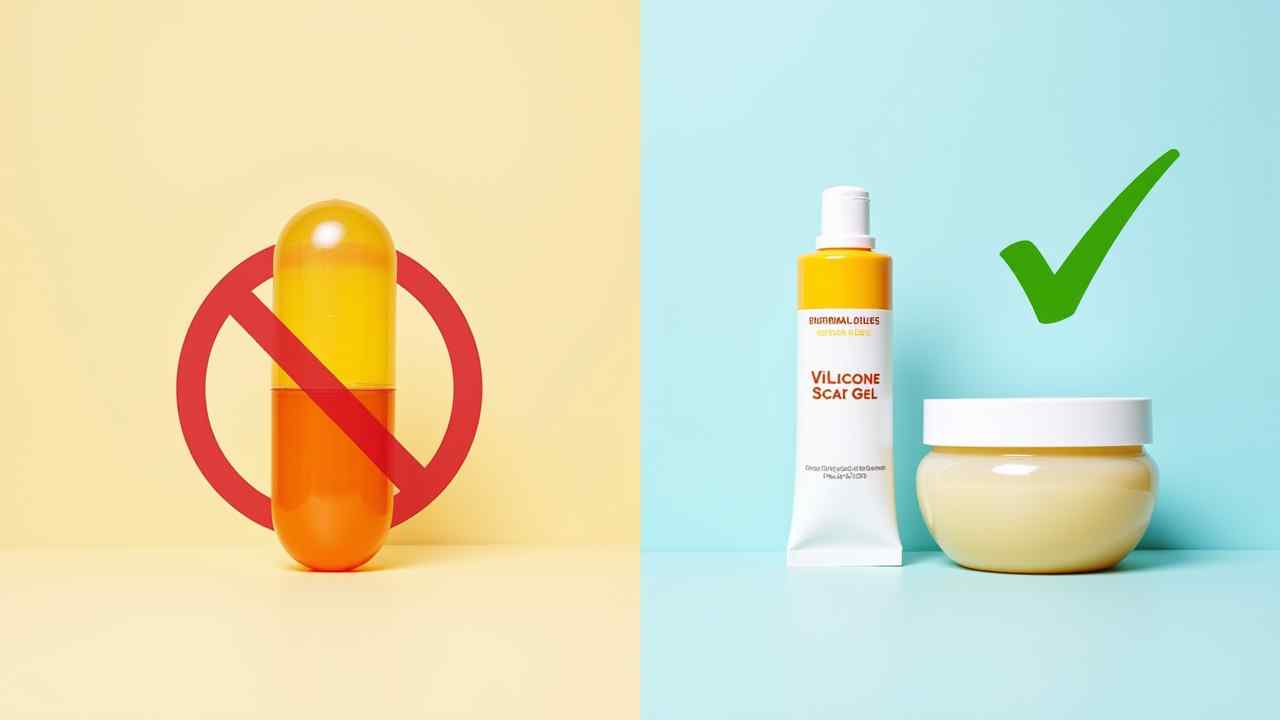
🔬 Does Vitamin E Help Scars? A Dermatologist's Look at the Evidence
🔬 Does Vitamin E Help Scars? A Dermatologist's Look at the Evidence 🔬
It is one of the most enduring home remedies in skincare. For generations, people have recommended breaking open a Vitamin E capsule. They rub the oil onto a new wound or an old scar. The belief is that it will help the scar heal better and fade away.
This advice is passed down with good intentions. But it leads to an important question. Does Vitamin E actually help scars? When we look at the scientific evidence, the answer is surprising. It is a classic case of a popular myth not matching reality.
This guide will explore what the research shows. We will also discuss the potential risks. Most importantly, we will cover what dermatologists actually recommend for effective scar treatment. Let's separate fact from fiction. 🤔
🤔 What is the Theory Behind Using Vitamin E for Scars?
The logic behind using Vitamin E seems sound. Vitamin E is a well-known antioxidant. Antioxidants help to protect our cells from damage. It is also a very effective moisturizer. These two properties are great for overall skin health.
The theory is that these benefits should apply to healing skin. It is believed that the antioxidant and moisturizing effects could support the healing process. This would lead to a softer, flatter, and less noticeable scar. This is the idea that has made the remedy so popular.
🧪 What Does the Scientific Research Actually Show?
This is where the myth begins to fall apart. Despite its popularity, the use of topical Vitamin E for scars is not supported by good scientific evidence. Multiple clinical studies have put this theory to the test. The results have been underwhelming.
In these studies, researchers compared topical Vitamin E to a simple placebo. This was often a basic ointment like petroleum jelly. They also compared it to no treatment at all. The studies consistently found that Vitamin E did not improve the cosmetic appearance of scars.
In fact, some studies showed that a significant number of participants developed a skin reaction to the Vitamin E. This actually made the appearance of the scar worse. The science simply does not back up the popular claim.
⚠️ Are There Any Risks to Using Vitamin E on Scars?
Yes. The biggest risk of using topical Vitamin E is developing an allergic reaction. This is known as contact dermatitis. It is a surprisingly common reaction to this ingredient. It can cause the skin to become red, itchy, and irritated.
Applying an irritant to a new, healing wound is a bad idea. This inflammation can interfere with the healing process. It can even lead to a worse-looking scar in the long run. Given the lack of proven benefits, the risk of irritation is not worth it.
✅ So, What Actually Works for Treating Scars?
If the answer to "does Vitamin E help scars" is no, then what should you use? Dermatologists and plastic surgeons recommend a few simple, proven methods. These are the gold standards for at-home scar care.
1. Keep the Wound Moist: The best way to prevent a bad scar is to care for the initial wound. Keep it clean and consistently covered with a thin layer of a simple ointment. Petroleum jelly (Vaseline) is a fantastic, proven, and affordable choice. 🩹
2. Use Silicone Gel or Sheets: This is the number one over-the-counter scar treatment. Silicone is scientifically proven to help scars. It hydrates the scar tissue and regulates collagen production. This helps to flatten and soften scars over time.
3. Protect from the Sun: This is a non-negotiable step. Sun exposure can cause a scar to turn dark brown or red. This is called post-inflammatory hyperpigmentation. You must protect your healing scar from the sun with sunscreen or clothing. ☀️
While topical Vitamin E is a popular myth, the real solutions are simple and effective. Stick to the proven methods for the best possible results. For severe or concerning scars, always consult a board-certified dermatologist. 🩺